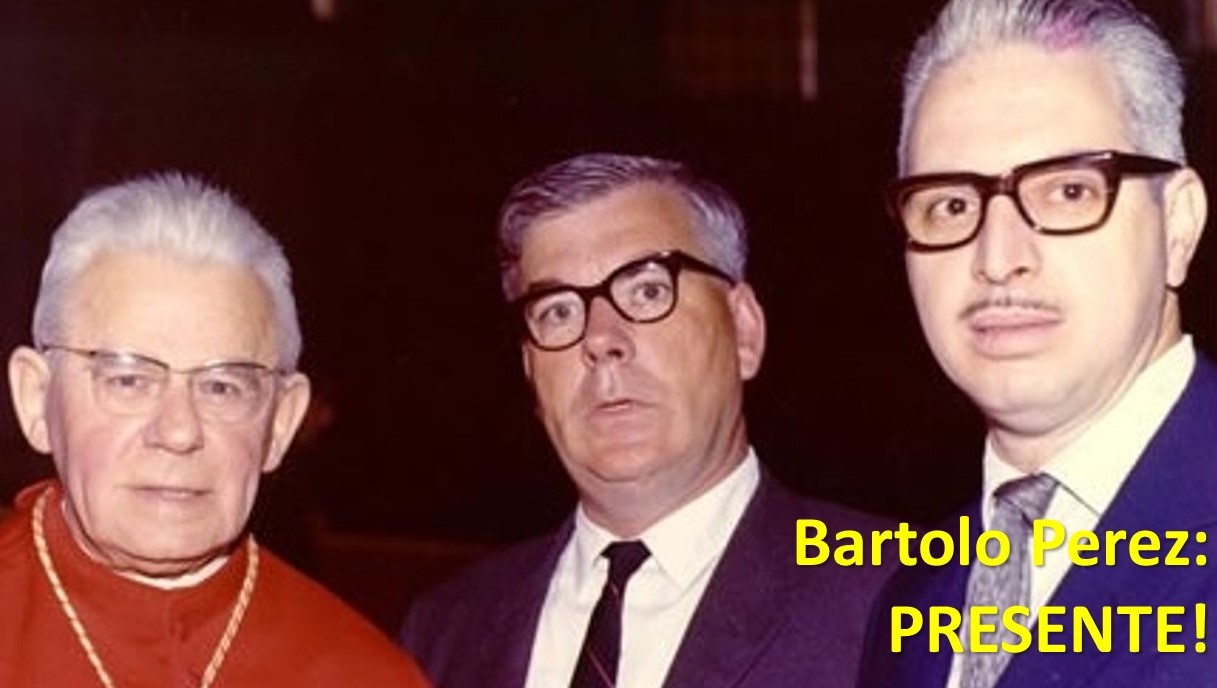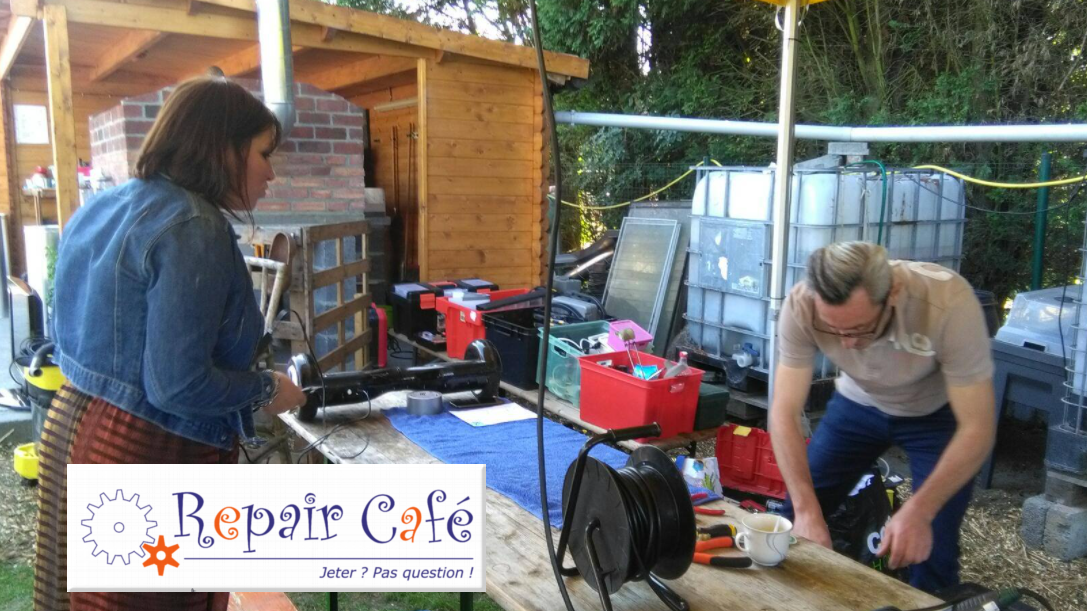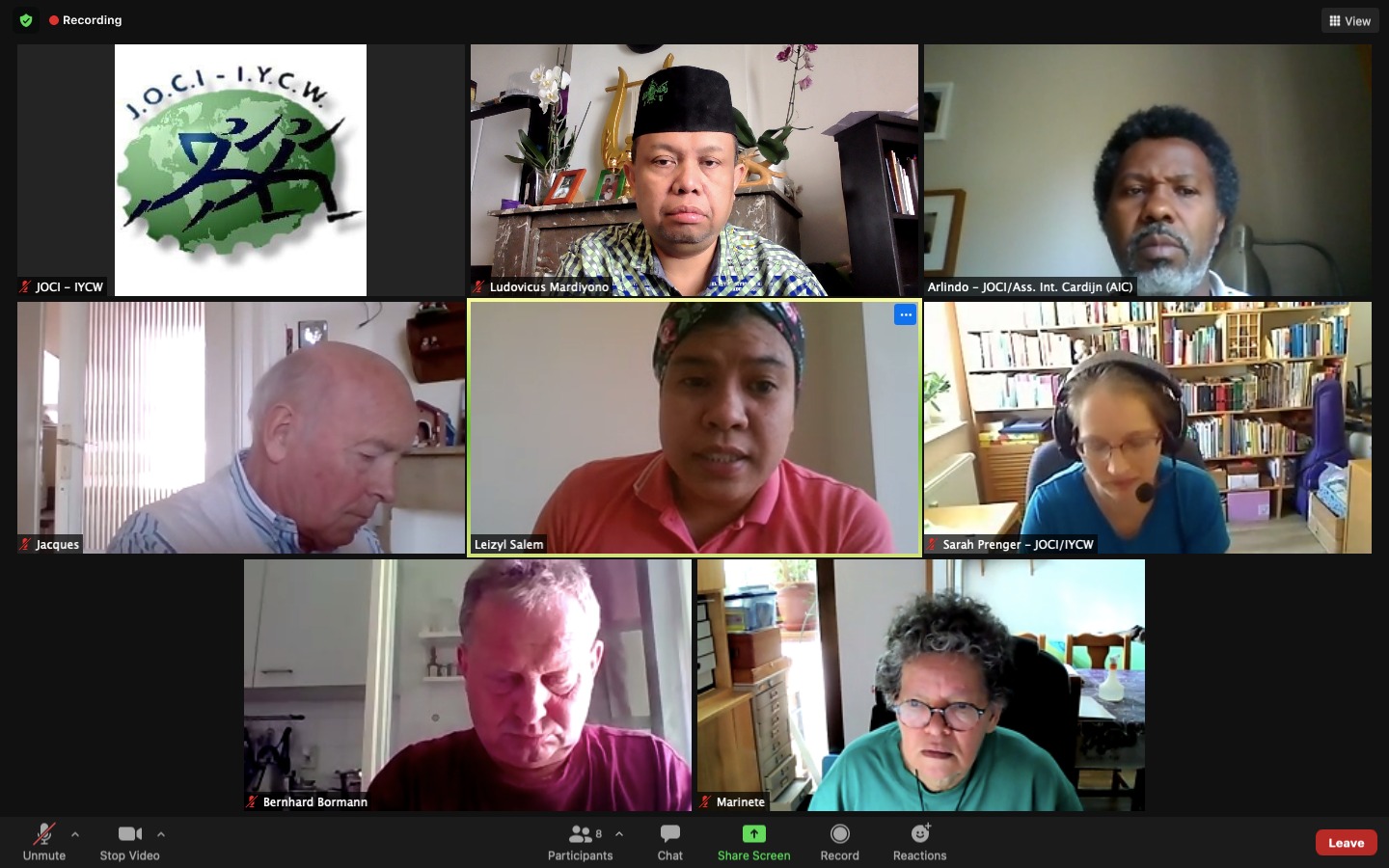The capitalist society that relies on overexploitation of resources, overproduction and overconsumption is inexorably dragging the planet and its inhabitants towards a precipice.
The consequences of this destructive way of organizing society are visible for humanity and the territories. There are numerous examples of this: the multiplication of natural disasters, melting ice caps, seas that consume coastlines, epidemics that break out... not to mention the floods that follow one another everywhere: in Belgium, Pakistan, Sri Lanka, Brazil... So many cases of mass destruction...
We have no choice but to strengthen solidarity... Current and former generations of YCW activists are involved in these struggles, and are also showing their solidarity in this time of urgent need!
This Eucharistic prayer was written by Albert Hari * in the 1970s and has been slightly adapted to today's context.
Lord our Father, you love humankind, your children.
Who have lived on this earth for over a million years.
For hundreds of thousands of years, they lived in extreme poverty.
Little by little, they learned to polish stone, make tools, build fires, cultivate the land, domesticate animals, speak and write, and build huts, houses and towns.
They organised themselves into tribes, peoples and nations.
They loved each other, they joined together. They fought against the cold, animals and a hostile environment.
They struggled for their particular interests. They fought amongst themselves, tribe against tribe, people against people.
They exploited one other. The rich crushed the poor. Slavery emerged.
They created gods for themselves. They projected their hopes onto them. They expected them to fertilise the soil, to make their homes fertile, to defeat their enemies...
Through all this trial and error, all these advances, all these weaknesses, you have never turned your back on people.

The weekend of February 16-18 took us to Belgium, to the Management Committee of the International Cardijn Association (ICA). This team is composed of people from different generations of IYCW leaders and the current International Secretariat. Basma, Leizyl, Cecilia, Arlindo, Michele, Mardi, Bernhard and Marinete attended the meeting.
The objectives of the meeting were, among others, to get an overview of the current situation of the movement in the different countries, to evaluate the general activity of the IYCW and to plan for the coming years, with particular emphasis on the celebration of the CENTENARY of the YCW.
A few days ago, our friend Jo Weber celebrated his 90th birthday, and we would like to pay tribute to him!

Josef Weber was born in Alsace on 28 February 1934. He grew up in Lingolsheim, a small town near Strasbourg.
Jo played a key role in shaping the International JOC, as an activist at local level, as full-time coordinator of the French YCW, and later as European Secretary and International Treasurer. He was a close collaborator of Josef Cardijn, and after the death of the latter, he initiated the International Cardijn Foundation (ICF), the forerunner organization of today's International Cardijn Association (ICA).
Jo Weber was the main organizer of the European Rally to Strasbourg in the summer of 1964, which brought together 25,000 young workers from all over the continent and was a powerful demonstration of organized working-class youth in Europe. The congress with 300 delegates presented to the Council of Europe the “Working Youth Manifesto” and drew public attention to the situation of young workers in Europe.

Bartolo Perez was born in São Paulo (Brazil) on November 20, 1925.
He was a teacher and trainer at the University of Porto Alegre. Of Spanish origin, his parents, Francisco and Josefa, arrived in Brazil during the immigration period in the early 20th century.
At the age of 14, he began working as an apprentice turner in a small auto parts factory. It was in this factory, in 1942, that 16-year-old Bartolo Perez met young Emídio, a YCW activist who helped him look at reality: "I was very curious to know what dignity was, what it meant," Bartolo said in an interview a few years ago.
Thus, the young worker’s awareness was raised and he started carrying out militant actions with his comrades. One of the first actions was to go to the union to denounce the working situation of young people in the factory.
This is how Bartolo joined the YCW group in the Mooca neighborhood in the Sao Paulo region.

When they welcomed the IYCW secretary-general (Orlando) and the ICA coordinator (Arlindo) last July, several former YCW members had the opportunity to meet and exchange on the realities and challenges of the IYCW and the ICA. Moreover, a delegation of the Walloon YCW came to join us. It was also an opportunity to present the different projects carried out by several former YCW members. Without giving a detailed description, the place is home to a collective vegetable garden, where some fifteen gardeners get together one day a week to grow various vegetables and share a common meal with products from the garden. The main objective of the garden is to encourage people to live together, creating social links through a vegetable garden which, it should be noted, does not use any pesticides.
The other initiative is a "Repair Café". This is a project that gives a second life to various electrical appliances, machines, clothes, tools, after being repaired for free by volunteer technicians. This is a way to fight against the overproduction of waste and thus preserve our environment.

There was an election at the ICA General Assembly held last February, and the following people were elected:
- Bernhard Bormann, a former member of the German YCW, was a member of the IYCW International team. He is currently working as a regional secretary of the KAB (Catholic Worker movement) in Rothenburg-Stuttgart. Bernhard represents the continuity, ensuring the bridge with the new advisors as he started to cooperate with the IYCW two years ago, in particular for the organization of the European Colloquy held in 2019.
- Marinete Alves Bayer was a member of the IYCW International Team from 1983 to 1987. She is a former YCW member from Brazil who lives in Spain. She is currently involved in several local social organizations in Spain and is very active in the Joseph Cardijn Educational Encounter Association.
- Michele Di Nanno was also a member of the IYCW International Team from 1983 to 1987. He is originally from Italy and is a former member of the Walloon YCW (Belgium). Very active and coordinator within the movement of permanent and popular education in Belgium, Michele will act as a bridge between the ICA and the Belgian particularities, as the IYCW secretariat is located in Brussels.
- Finally, Ludovicus Mardiyono was president of the International YCW from 2012 to 2016 and he was also president of the Indonesian YCW. He is the "most recent former member" of the IYCW. With his communication skills, he will assist the IYCW and the ICA, among others in editing and publishing website articles and newsletters that will be produced to keep you informed about actions and views on issues of importance to youth and the IYCW.



